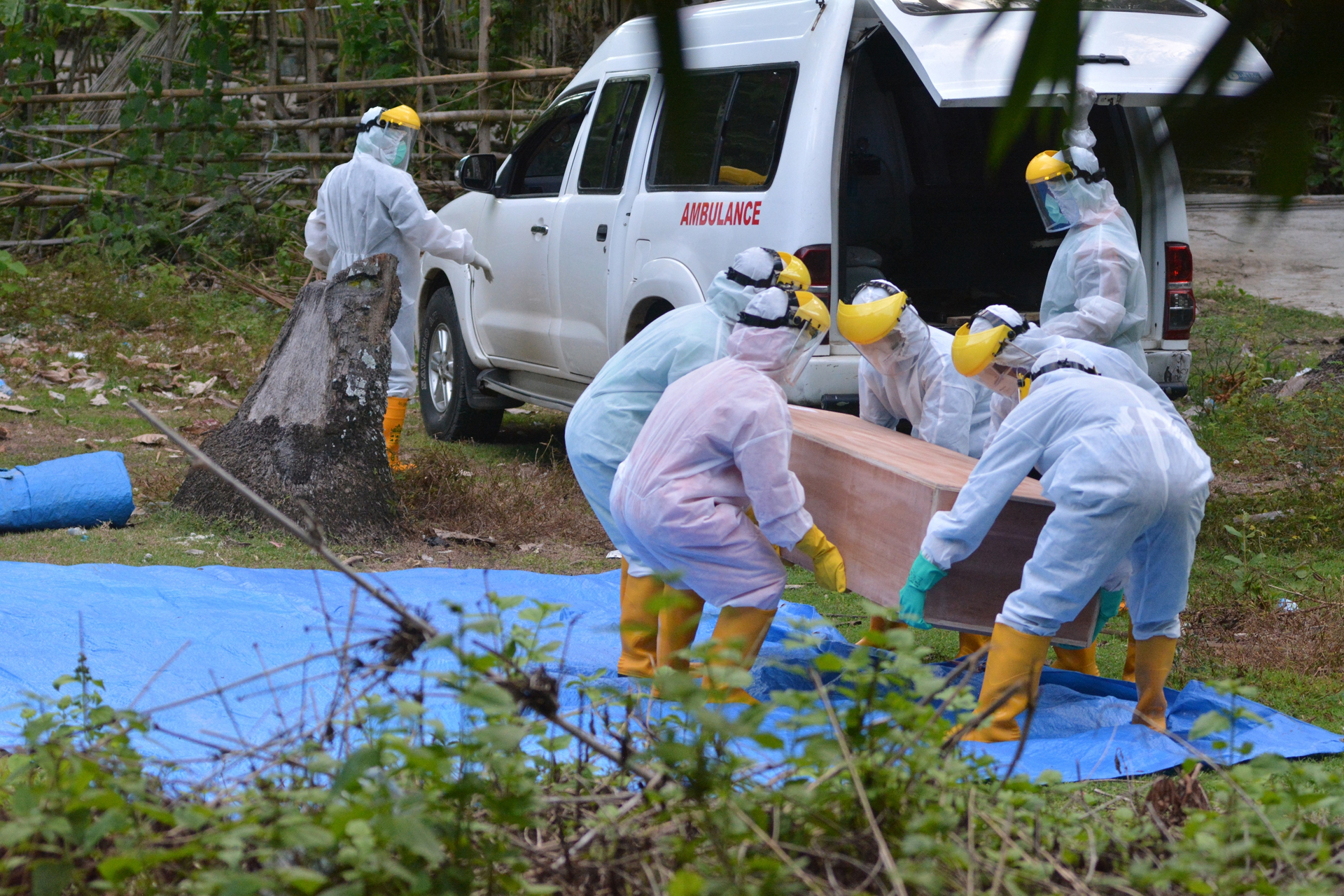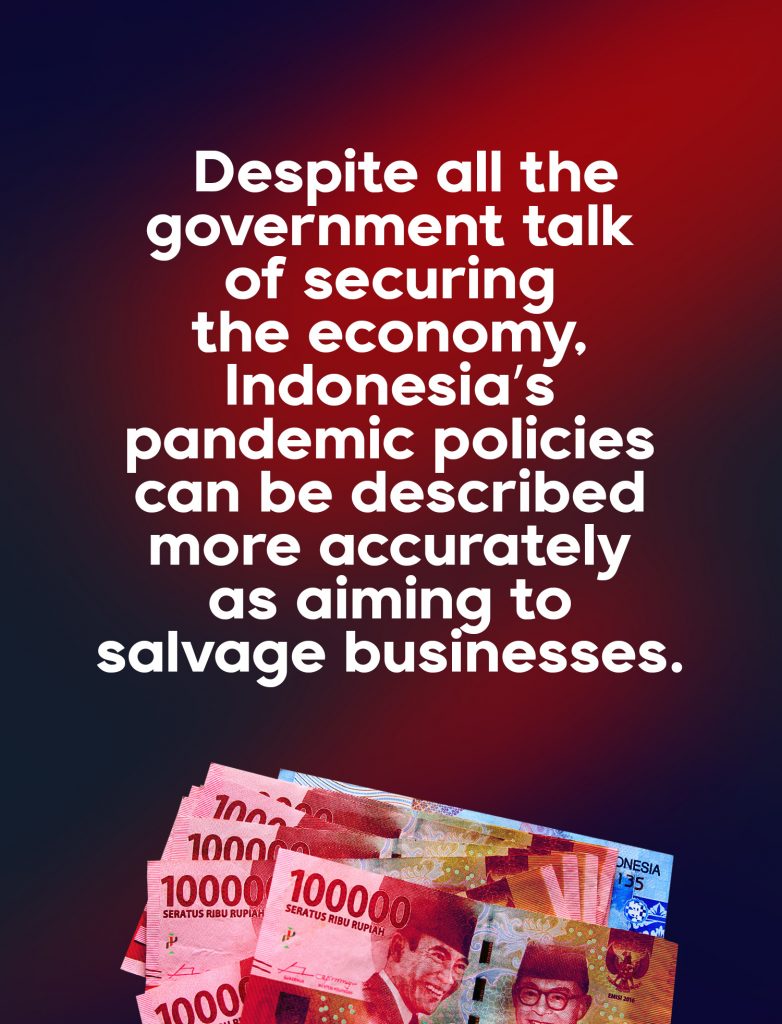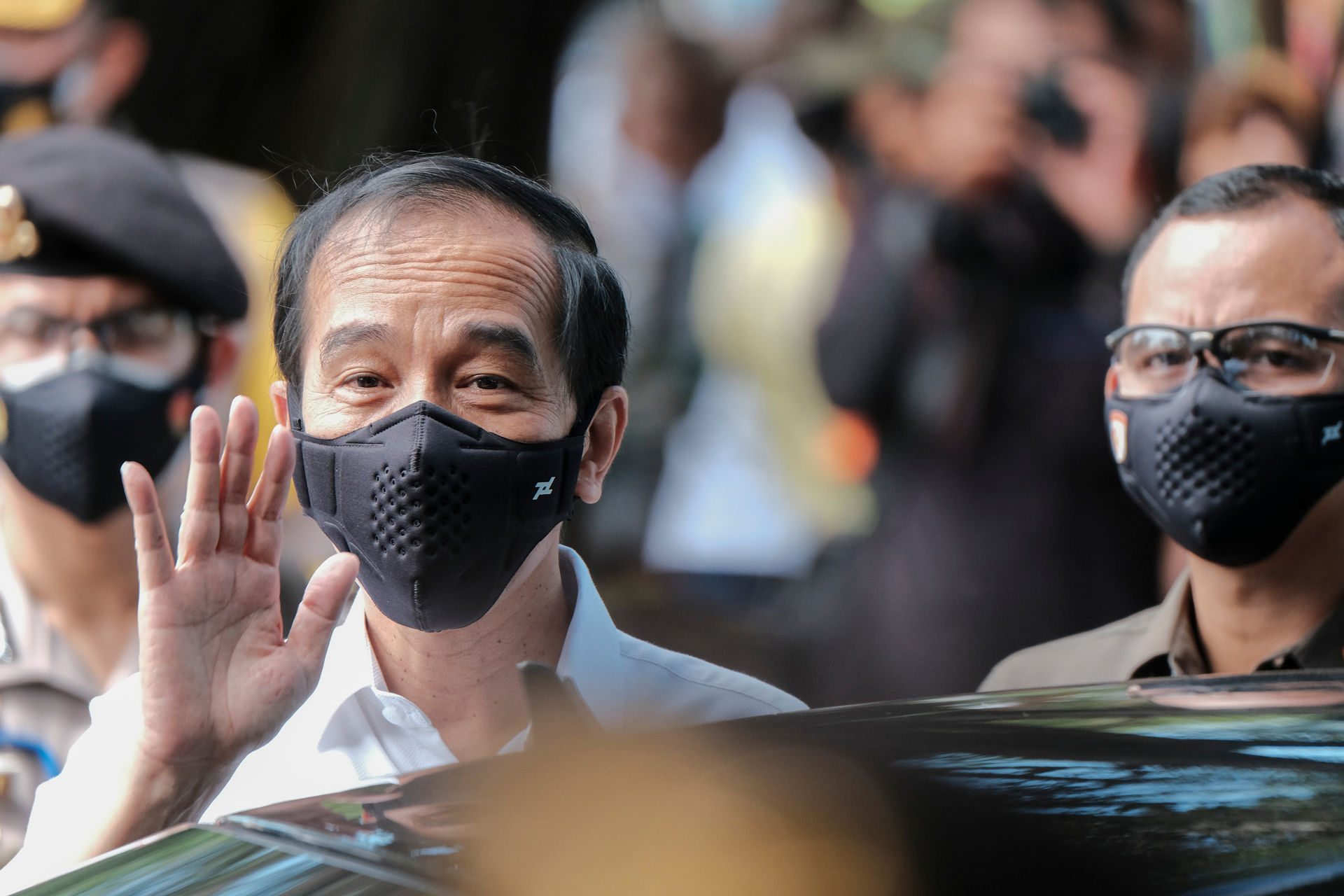The first warning signs of the second COVID-19 wave came last 21 June, when Indonesia broke its record number of daily cases for the first time since January this year. After a month or so, over 1.44 million Indonesians tested positive for the virus and more than 20,000 people died from it. Hospitals were reported to be treating patients in makeshift tents by early July, signaling an impending overcapacity of the national health care system, while people died in self-isolation as many failed to find a hospital that would take them in.
By 16 July, Indonesia had the most number of daily COVID-19 cases in the world. It soon became the country with the most daily COVID-19 deaths, bypassing Brazil and Russia’s figures. These unprecedented deaths even led to the shortage of coffins in various places throughout the archipelago, prompting some people to volunteer to build wooden caskets. Other groups have created a repository of pre-owned but unused oxygen tanks for people needing them, refilling and transporting them in the midst of soaring oxygen prices.

In July 2021, Indonesia became the country with the most number of deaths per day. This led to an unprecedented shortage of coffins that prompted volunteers to build new ones for those in need.
In a rare admission of state shortcoming, Coordinating Minister for Maritime and Investment Affairs Luhut Binsar Panjaitan said that the government “did not expect cases to increase in June,” and issued a formal apology for “not being optimal in its handling of the crisis.” Health Minister Budi Gunadi Sadikin meanwhile blamed the Delta variant, which he claimed came with a shipment of goods from India, as a major contributing factor to the second wave. What he didn’t mention was that India’s own second wave was already making its health system shake and falter by early April, alarming other countries.
The Delta variant’s catastrophic rampage across India should have provided sufficient warning to Indonesia, whose predominantly Muslim population was set to celebrate the Islamic Eid al-Fitr festival on 13 May. The religious festival is one of the largest annual human migrations in the world — possibly dwarfed only by Chinese New Year celebrations. Each year, around 30 million people travel back to their hometowns where they feast with relatives and friends. In the time of COVID-19, that would make the festival a perfect superspreader event.
But the Indonesian government seemed reluctant in imposing a foolproof ban to halt the mass exodus of people during Eid. One prime reason: the festival’s significant economic contribution. Indonesia’s GDP had shrunk by over 2% in 2020, and there was now a looming threat of recession. Eid al-Fitr has always led to a spike in consumption as people buy new clothes, renovate their houses, and stock up groceries to cook exuberant feasts. It has also helped distribute money from urban commercial centers to rural areas as visitors purchase from local retailers and aid poorer family members, helping rejuvenate the local economy.
Halting the flow of people during Eid would thus mean halting the flow of money — and President Joko Widodo is well-known for his “Economy First” stance in handling the pandemic, with moves such as providing relief packages to stimulate the economy. That particular initiative, though, was made possible by loans from the likes of the Asian Infrastructure Investment Bank (AIIB), the Asia Development Bank (ADB), and the World Bank, and amounted to US$1.25 billion. Indonesia scholar Marcus Mietzner points out: Citizens have been offered some protection from the economic repercussions of the virus, but not from the virus itself.
Saving people or saving businesses?
Despite all the government talk of securing the economy, Indonesia’s pandemic policies can be described more accurately as aiming to salvage businesses. A Bloomberg report has even suggested that the President had been swayed by business elites not to impose a full area lockdown in spite of his ministers’ pleas for a more robust action against COVID-19’s spread. This happened on 30 June, just as Indonesia once again broke  its daily record of reported cases by twofold and hospitals began reporting to have reached overcapacity. Luhut also confirmed that the government would continue providing fiscal incentives for businesses, ranging from tax holidays to free import duties, with hopes of retaining investment.
its daily record of reported cases by twofold and hospitals began reporting to have reached overcapacity. Luhut also confirmed that the government would continue providing fiscal incentives for businesses, ranging from tax holidays to free import duties, with hopes of retaining investment.
The government itself has been on a buying spree, snapping up test kits, protective gear, and respirators. While that may seem logical given the pandemic, Mietzner describes it as “sparking a procurement run by private and state-owned enterprises to obtain such items, and sell them to the government and individual hospitals.” Not long after came reports that the test kits were faulty and unreliable.
Meantime, the government has taken to semantic acrobatics to avoid delivering sufficient aid to the people. Indonesia’s Health Quarantine Law stipulates that the central government is responsible for providing living costs and feeding the livestock of a population under quarantine. Yet the government has largely kept quiet about this policy. Instead, it devised makeshift social-distancing provisions that do not mandate providing social safety nets — all while still imposing sanctions in the Quarantine Law for people who breach public activity prohibitions.
When the government does provide a morsel of aid, it often carries the stench of corruption. In December 2020, for instance, Social Minister Juliari Batubara was named as suspect in a scheme to siphon off IDR 10,000 (US$0.69) per COVID-19 food aid package containing rice, oil, and canned sardines for at-risk families. The packages were valued at IDR 300,000 (US$20.72) each. Under the scheme, Juliari would appoint several businessmen as the procurers in the food aid program; in return, they would deliver the budget cuts back to him. Juliari was later proven to have received IDR 32.2 billion (or over US$2.2 million) in bribes, enough to provide 107,000 aid packages for families in dire need of them.
Double jeopardy
In the face of never-ending pandemic-related controversies, the government has developed mantras of sorts, which it repeats like a broken record: It is carrying out a gargantuan task, which people should “try to understand.” It is trying everything in its power, and is often faced with the grim dilemma of “having people die of poverty” versus “having people die from the virus”, thus forcing it to make tough, painful decisions.
Yet even this narrative is skewed. In reality, people are already dying from both.
A groundbreaking report from the journalism initiative Project Multatuli suggests that many of Jakarta’s urban poor contracted the virus and died without ever being registered as COVID-19 patients, meeting their sudden demise while doing household chores or in public spaces. Treatment for the virus in Indonesia is free once one tests positive, as is the test itself. But one has to pay for the test if the result is negative.
The cheapest standard antigen test costs IDR 140,000 (US$20); some of Jakarta’s urban kampung dwellers make only IDR 1.4 million (US$200) every month — and this was even before the emergency restrictions completely dried up their precarious streams of income. This means the most vulnerable among the populace are suffering without even once availing of the services that are part of the state’s response to the pandemic, all because of the financial barrier. Many die and are buried without official confirmation on whether or not they had COVID-19.
Epidemiologists say that Indonesia’s reported cases are but a fraction of the real numbers. The country has one of the world’s worst testing ratios, with 55.89 tests conducted per 1,000 people. The grassroots initiative LaporCovid (Report Covid) recently disclosed that the central government has underreported up to 20,000 deaths, based on data it gathered from cities and provinces.
A growing military footprint
All these paint a picture of an administration preoccupied with concealing its incompetence through nefarious means rather than actually solving a crisis — especially if such crises have turned out to be rather profitable. Not long ago, the government conducted trials for the anti-parasite drug Ivermectin (endorsed by right-wing figures around the world as an unproven miracle COVID cure). This was after the Presidential Chief of Staff and retired General Moeldoko endorsed it. After the NGO Indonesia Corruption Watch hinted that Moeldoko’s daughter had close ties with Harsen, which makes Ivermectin, Moeldoko threatened to sue the group for defamation.

President Joko Widodo, known for his “Economy First” policy in handling the pandemic, provided relief packages to the business sector to keep the economy going as the country deals with the challenges of COVID-19. Critics lament that while citizens got some economic protection, they hardly received any protection from the virus itself.
Political analyst Jun Honna argues that the pandemic has provided the military a pretext to exert its influence over civilian affairs. To cement his political position during these turbulent times, the President had consolidated his military alliance by handing over posts in the COVID-19 Task Force, headed by Lieutenant General Doni Monardo, to over 200 military officers (as deputy chiefs). Honna says that aside from deploying 32,000 military personnel — along with 21,000 members of the police force — to be stationed across Java and Bali to enforce social distancing measures during the second wave, the army has also mobilized Babinsa (non-commissioned military officers in the village level) to patrol markets, bus and train stations, and even places of worship.
These have given Indonesia’s on-the-ground COVID-19 responses a sharp military nuance. While many personnel are understandably stationed to monitor the flow of traffic in and out of “red zones,” stories of brutality and incarceration have emerged all over the country throughout the second wave. A municipal police officer in Gowa, South Sulawesi, for example, was recorded striking a pregnant woman after accusing her of having her food stall open past the pandemic curfew. In Tasikmalaya, West Java, a coffee shop owner chose a three-day prison sentence over a fine of IDR 5 million (US$347), for keeping his shop open beyond designated hours.
Authorities have also clamped down on even the most minor of public demonstrations. Police arrested dozens of students attending a small May Day rally this year, saying that they “are not laborers, and thus have no business nor permit to protest.” They cited pandemic control as reason as well. Just 800 meters away, 15 Papuan student activists demonstrating outside the U.S. Embassy were also arrested. Both groups were transported in a crowded van to police headquarters — effectively undoing the supposed goal of pandemic control.
As the second wave begins moving to other islands beyond Java and Bali and reaching more remote areas with fewer health facilities, it is likely that whatever horror there is ahead would also be underreported. Indonesians are getting angrier. But the government is betting that COVID-19 fatigue and the desire for things to return to normal as soon as possible will keep it safe.
What Indonesia needs right now is for the people to maintain a sense of rage. They would also do well to remember what lies between the devil of poverty and the deep blue sea of pestilence: It’s the mixture of business interests and a draconian military revival.●
Eduard Lazarus is a Jakarta-based journalist and editor writing on media and social movements.



















